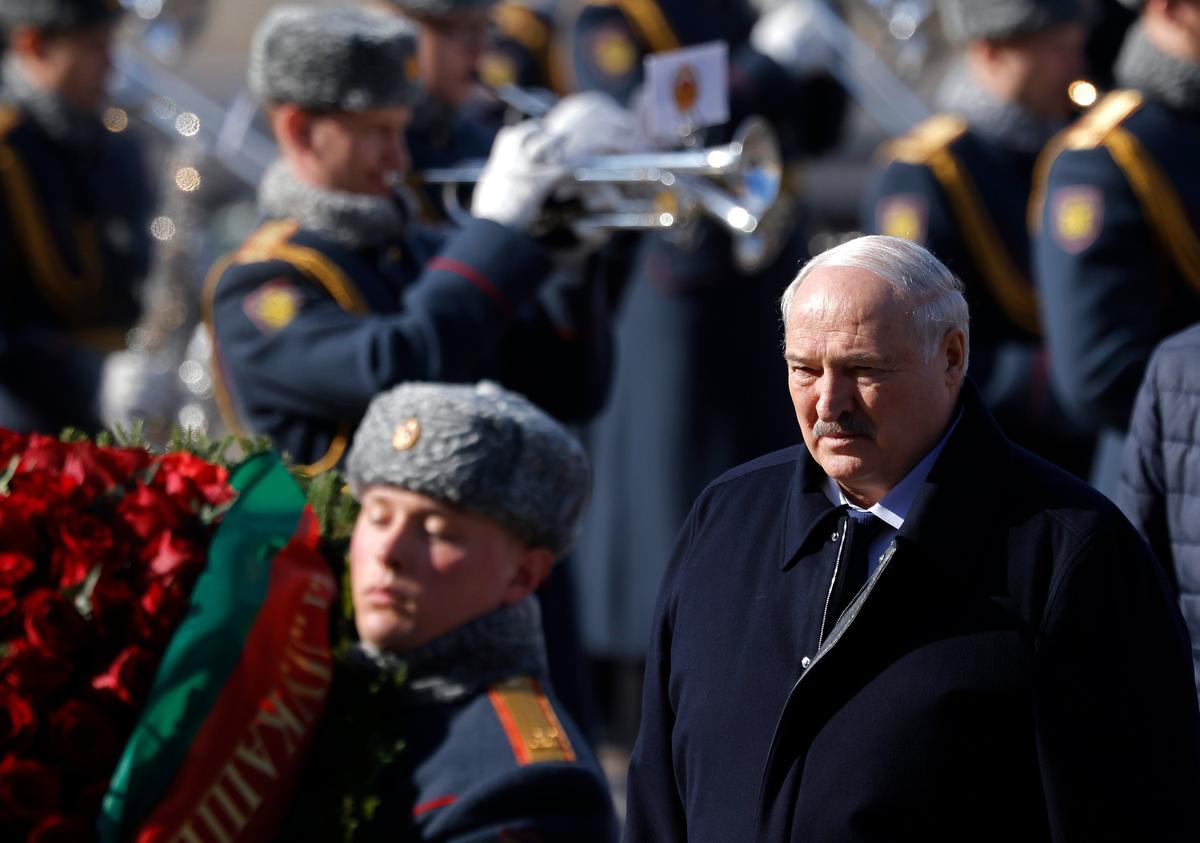
Alexander Lukashenko attends a wreath-laying ceremony at the Tomb of the Unknown Soldier in Moscow, 14 March 2025. Photo: EPA-EFE / MAXIM SHEMETOV / POOL
Belarusian dictator Alexander Lukashenko has announced plans for a large-scale amnesty of some 8,000 prisoners in honour of next month’s Victory Day celebrations, which this year will mark 80 years since the Soviet Union’s defeat of Nazi Germany in World War II.
Draft legislation has already been introduced to parliament on Lukashenko’s request, a statement from his press service issued on Thursday said.
Under the proposal, inmates would qualify for amnesty if they have fully compensated for any damage caused by their crimes and demonstrated good behavior while in custody. The list of eligible individuals will also include prisoners suffering from certain medical conditions, though no further details were given.
In addition, the plan suggests that people over the age of 70 — provided they have no prior convictions and their sentence does not exceed six years — could be transferred to house arrest instead of serving time in prison.
Lukashenko has issued dozens of pardons in recent months as he attempts to rebuild his international reputation, which was left in tatters by the mass arrests and brutal violence used by the security forces to put down nationwide protests against his decades-long rule in 2020–21. However, according to Belarusian human rights organisation Viasna, the total number of political prisoners in the country is rising, not falling.
Meanwhile, Kremlin spokesperson Dmitry Peskov told state-owned news agency RIA Novosti that no such amnesty was being considered in Russia to mark the 80th anniversary of the end of World War II next month.
Russia last amnestied prisoners to mark Victory Day in 2015, when a total of approximately 225,000 people, both convicted prisoners and those awaiting trial, were released from custody.
